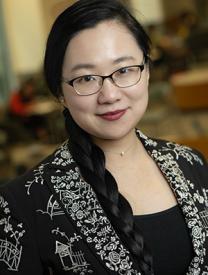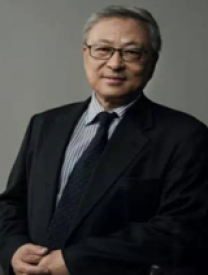Each year, the CSCC invites leading experts to Penn to present their research and share their knowledge about contemporary China. Typically scheduled for Wednesday afternoons 4:30-6 pm, speakers will deliver their remarks and then entertain questions from the audience. Attendance is open to the entire Penn community. Announcements about upcoming talks will be posted on the CSCC website and disseminated via the Center’s listserv. To be added to the listserv, please visit our signup page https://groups.sas.upenn.edu/mailman/listinfo/cscc-announce.
Past Speaker Series
Rural E-commerce and Peasant Entrepreneurship in China
Lin Zhang, Assistant Professor of Communication and Media Studies, University of New Hampshire
The phenomenal rise and rapid expansion of digital platforms following the 2008 economic crisis are reshaping the economy and reorganizing labor on a global scale. However, digital labor studies, in their emphasis on…
US-China Relations: A New Era of Bipolarity?
Yan Xuetong, Professor of International Relations, Tsinghua University
While work in international relations has closely examined the decline of great powers, not much attention has been paid to the question of their rise. The upward trajectory of China is a particularly puzzling case.…
China’s War on Poverty: Winning at What Cost?
Qin Gao, Professor of Social Policy and Social Work, Columbia University
The Chinese government has set the ambitious goal of eradicating poverty by 2020. Will this goal be achieved, and at what cost? Drawing from her book,…
Censored: Distraction and Diversion Inside China's Great Firewall
Margaret Roberts, Associate Professor of Political Science, University of California San Diego
As authoritarian governments around the world develop sophisticated technologies for controlling information, many observers have predicted that these controls would be ineffective because they are easily thwarted…
Understanding China's Increasing Role in Global Clean Energy Innovation
Joanna Lewis, Associate Professor of Science, Technology and International Affairs, Georgetown University
China’s rapid rise to become the largest investor in and user of clean energy technologies in the world has simultaneously cast it as both an international climate leader and an unfair competitor. How is China…
Economic Impacts of the US-China Trade Conflict on Developing Asia and the US
Bart Édes, Asian Development Bank Representative for North America
The 2018 trade conflict between the United States and the People’s Republic of China has affected not only bilateral…
End of an Era: How China's Authoritarian Revival is Undermining Its Rise
Carl Minzner, Professor of Law, Fordham University
In conversation with Neysun A. Mahboubi, Research Associate, Center for the Study of Contemporary China
Cosponsored by the Andrea Mitchell Center for the Study of Democracy
Testing Legislator Responsiveness in Single-Party Regimes: A Field Experiment in Vietnam with Possible Lessons for China
Edmund Malesky, Professor of Political Science, Duke University
This research aims to establish whether targeted provision of constituent preferences increases the responsiveness of delegates to the Vietnamese National Assembly (VNA). Utilizing a randomized control trial (RCT),…
Quid Pro Quo, Knowledge Spillovers and Industrial Quality Upgrading
Judith and Marshall Meyer Lectures on China’s Economy
Jie Bai, Assistant Professor of Public Policy, Kennedy School of Government, Harvard University
Are quid pro quo policies effective in facilitating knowledge transfers to developing countries? We study this question in the context of the Chinese automobile industry where foreign firms are…
Escaping Import Competition and Downstream Tariffs in China
Ann Harrison, Professor of Business Economics and Public Policy, Wharton School of Business, University of Pennsylvania
This research proposes and provides evidence for a new source of gains from trade: Firms invest in product differentiation to escape import competition. In the data and in the model, these investments are associated…










